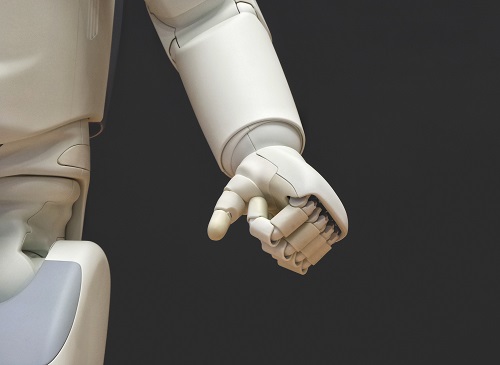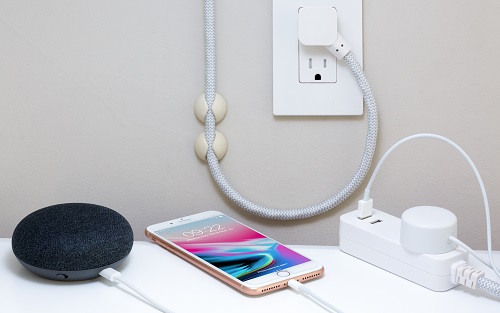Giving artificial intelligence elements of free will sounds like the beginning of a sci-fi apocalyptic film. In fact, such scripts have been crafted several times before. It sounds great at first, until the robots turn on us.
Many of these films are probably grossly exaggerated scenarios. And unlikely to happen.
Still, they pose quite the question: What would happen if we built a robot that had feelings? That it could be programmed to change its mind. Or learn new behaviors and actions on its own.
Is it a thrilling thought or a scary scenario that could have damning consequences on society?
The Economic Impact of AI
Facebook creator Mark Zuckerberg and SpaceX CEO Elon Musk disagree about the ramifications of artificial intelligence. In fact, a while back their disagreements over the topic got a little fiery. Here’s how it played out:
It started with Musk, when he said AI will spur massive job disruption, as robots will learn to do everything better than humans do. “I’m not sure exactly what to do about this,” he added. “This is really the scariest problem to me, I’ll tell you.”
Musk went on to talk about how transportation operators will be the first professions to go jobless. He added that robots can teach themselves physical capabilities much more quickly than human beings can: “You can see robots that can learn to walk from nothing within hours, way faster than any biological being.”
 Then Musk went on to talk about more dangerous scenarios. Everything from more direct physical harm to mischievous robots who decide to spoof emails and spread fake news.
Then Musk went on to talk about more dangerous scenarios. Everything from more direct physical harm to mischievous robots who decide to spoof emails and spread fake news.
Zuckerberg took issue with Musk’s comments, claiming that his outlandish “doomsday scenarios” were “irresponsible.”
“I have pretty strong opinions on this. I am an optimist,” Zuckerberg countered. “I think you can build things in ways that the world gets better. With AI especially, I am really optimistic.”
“And I think people who are naysayers and try to drum up these doomsday scenarios — I just, I don’t understand it. It’s really negative and in some ways I actually think it is pretty irresponsible.”
Within the next decade, Zuckerberg concludes, AI will enhance our quality of life more than we ever would have imagined. One compelling example he gives is the idea that artificial intelligence is already helping to diagnose serious diseases. The other more glaring example would be self-driving cars (considering that automobile accidents are among the top causes of death).
In our opinion, both Musk and Zuckerberg have some compelling arguments.
Will AI Be Smarter Than Humans?
In some ways, they already are. Despite what AI experts had been saying for quite some time… That we weren’t even close to the point where AI could win out against some of the world’s top gamers.
A Google subsidiary, DeepMind, made the case – against this notion – with its Go-playing software called AlphaGo Zero. The program is entirely self-taught, and has dominated the game’s world champion. DeepMind contends that this isn’t just a neat development where a computer beats a human at a game.
It means algorithms can be created to tackle some of the most difficult obstacles in science, everything from new pharmaceutical developments to more accurate models of climate (on a local and global level).
Of course, Mr. Musk isn’t alone in his doomsday conclusions. Even politicians have expressed their concerns. Congressman John Delaney, a Democrat from Maryland, said that “Innovation has liberated humans to be more productive.” However, he adds, there are “millions of conversations that can occur between now and the Terminator arriving.”
His concern is retraining workers for an AI-ridden future. In turn, groups like AI Now have warned people of the rise of “fascist AI.”
What do the American people think about the rise of artificial intelligence? The results are mixed. But there are serious concerns. According to a Pew poll released last year, more than 60 percent of people are “worried” about AI’s impact on jobs, self-driving cars, and medical care.
A USA Today poll revealed a similar sentiment, as 43 percent concluded that the idea of AI being more intelligent than humans would do “more harm than good.”
 Emotional Attachment to Non-Humans
Emotional Attachment to Non-Humans
Perhaps the most interesting aspect of AI is its impact on human emotions. The movie “Her” introduces a fascinating scenario:
A marriage comes to an end, leaving a heartbroken man lonely and vulnerable. Played by Joaquin Phoenix, Theodore becomes entranced with a new operating system named “Samantha.” Samantha has a playful personality that can sense Theodore’s emotions and teach “herself” to act accordingly. While they start off as simple companions, the “relationship” begins to deepen.
You can probably guess what happens next… Theodore falls in love. That’s right, with a robot.
The synopsis doesn’t do the movie justice. It seems far-fetched. But if you’ve seen this movie, you can probably envision scenarios like this that could happen. Especially to people who are emotionally vulnerable.
Interestingly enough, in some places you’ll find this film under the “Romantic Comedy” category.
It’s hard to believe that anyone could actually find an emotional connection with a robot. While we can’t necessarily disagree, you might consider a few factors:
- A robot could be programmed to never argue with you.
- They could be programmed to always be there for you, regardless of your actions.
- They could share your fears, your dreams, and inspirations.
- They could share every single interest you have (sports, music preferences, etc.).
The questions is what giving artificial intelligence free will would mean for society.
It’s a worthy debate. And not just for the typical reasons you would hear discussed: Jobs, healthcare, warfare, etc.
If we can find deep companionship with robots, will that have an impact on human-to-human companionship?
